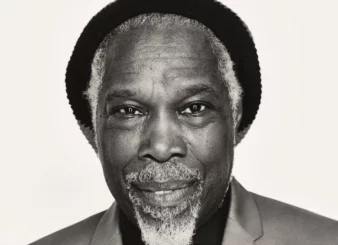Practice makes perfect.
It’s a phrase we’ve all heard before. I’d go as far as to say it’s a phrase we’ve all said before, whether to ourselves or a frustrated friend in need of a somewhat superficial boost.
However, I doubt that any of us have made quite as much money from the idea as the Canadian writer Malcolm Gladwell.
It was his book, Outliers, which originally helped popularise a snazzier sounding version of ‘practice makes perfect’ back in the dark days of the recession: The 10,000 Hour Rule.
It certainly has a certain buzzword-y ring to it.
The idea behind the ‘10,000 Hour Rule’ is that deliberate, sustained practice in one specific field plays a crucial role in becoming an expert in that discipline. And since the book was published in 2008, it’s been used as a go-to theory on the sacrifice it takes to be successful.
But it’s not quite that simple.
K. Anders Ericsson, the Swedish psychologist behind the original study which coined the ‘10,000 Hour Rule’ believes Gladwell vastly oversimplified the theory, something Gladwell himself now recognises.
Quite simply, practice alone just isn’t enough nor does it exist in a vacuum. (A.k.a. There are other factors at play.)
Ask anyone who spent thousands of hours kicking a football about as a kid, yet failed to become the next Beckham.
Yet Gladwell’s thesis is actually much more nuanced than the fairly broad-strokes ‘10,000 Hour Rule’ implies.
He actually spends a large portion of the book highlighting an array of other factors which play a part in the development of what Liam Neeson might call ‘a very particular set of skills’.
Factors like access, privilege, cultural upbringing, and race, to name but a few.
Cool.
So, if practice doesn’t make perfect…what does?
As recruiters and talent developers, figuring out an answer to that certainly wouldn’t hurt.
Environment might be more important than racking up the hours
Nurturing talent is about much more than simply giving someone a ton of responsibility and letting them crack on. Practice (alone) doesn’t make perfect, nor does it exist in a vacuum, remember?
A lot of the time the first port of call is to tag ‘Digital’ on to someone’s job title and hope that suddenly makes them an expert. Unfortunately, without the relevant budget, training, technology & measurement of performance, the development or true specialists who understand an ever-changing landscape is going to be severely limited.
That’s not to say that giving a new recruit time to get to grips with a role and allowing the natural learning curve to play out is necessarily a bad thing. (Although, do keep in mind that racking up 10,000 hours will take about five working years.) In fact, it’s crucial. But it’s also not the only thing.
Expertise cannot develop without passion
Think back to your maths lessons at school (delete as appropriate, leaving behind the one you hated the most).
You might have put in plenty of hours in those lessons–although maybe not quite 10,000–but do you remember Pythagoras’ Theorem? Shakespeare’s soliloquies? The Spanish for anything beyond ‘dos cervezas, por favor’?
In short, without passion for a topic, no amount of practice time is going to turn you into an expert.
The same logic is equally applicable to employers trying to find talent to be nurtured.
In an ever-changing landscape, previous experience (even 10,000 hours of it) quickly becomes redundant if the desire to continue learning disappeared 8,596 hours ago.
So, when searching for digital & eCommerce talent for FMCG businesses, the intersection of experience between skills and sector is still relatively small, so taking a broader view than square pegs for square holes is crucial.
Without these traits, all that practice may amount to nothing than more than banging your head against a digital brick wall.
Think of it this way: 10,000 hours + passion x environment = someone on their way to success. All you have to do is find them.










